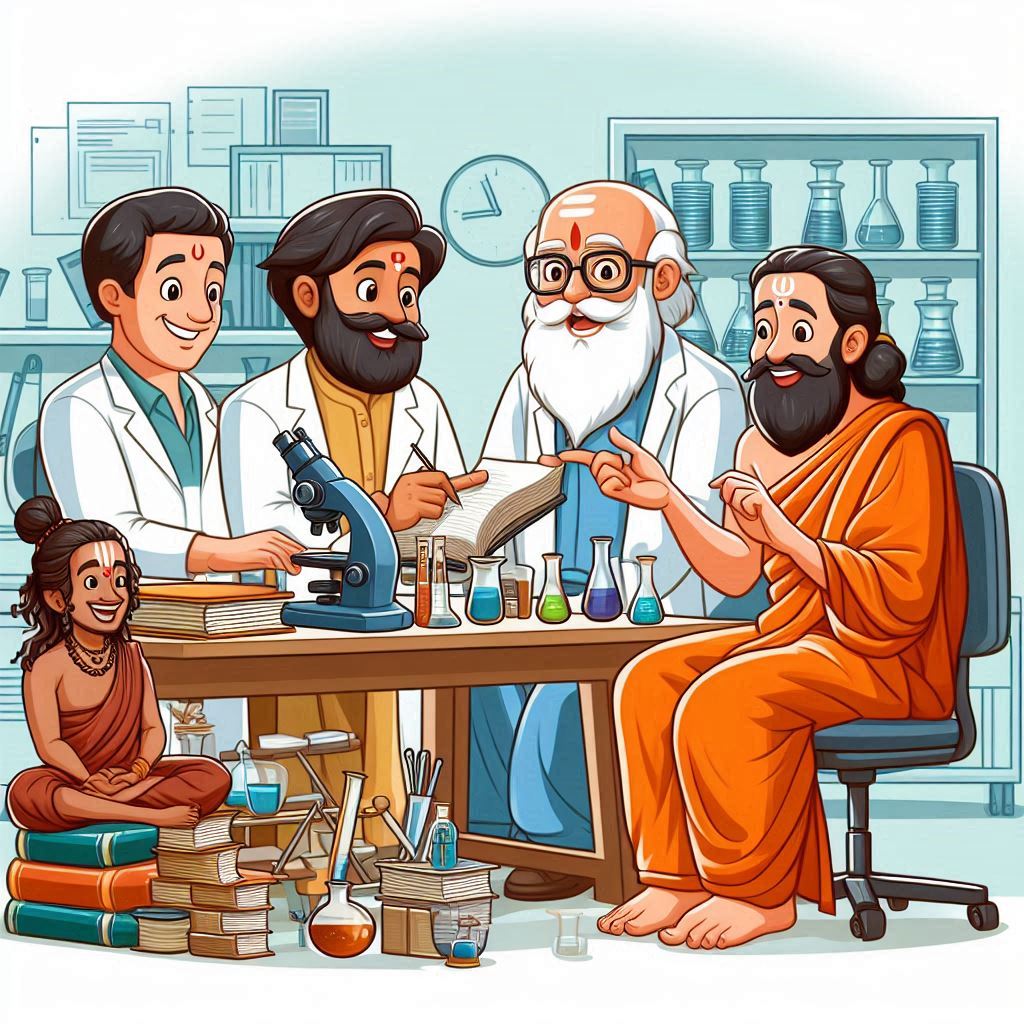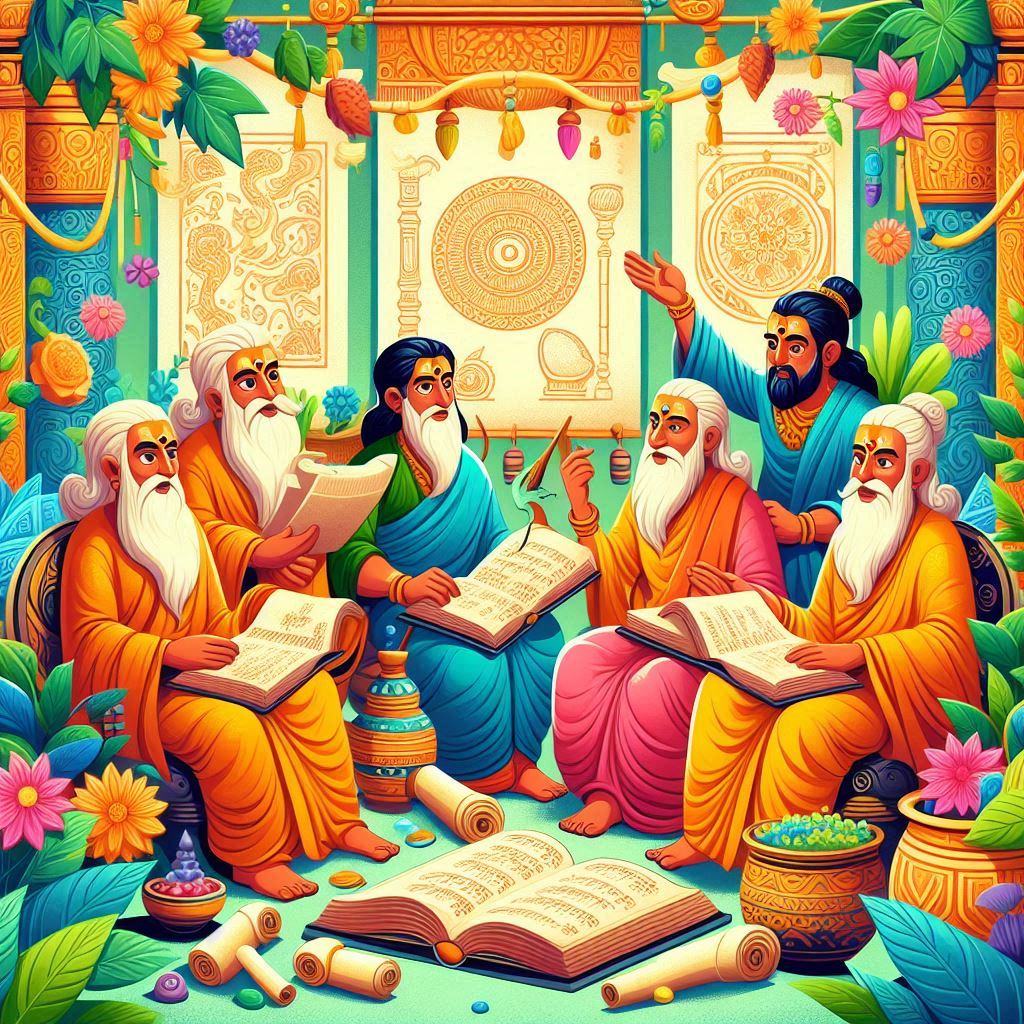There are moments when ancient questions surface unexpectedly in modern language. A scientific inquiry into whether a ‘havan’—a sacred Vedic fire ritual—can bring rain might, at first glance, seem like a quaint curiosity from a cultural past. But beneath this question lies something far more urgent: a quiet civilizational dialogue between two ways of knowing the world. One measures clouds and charts humidity; the other invokes intention, consciousness, and cosmic order. The intersection of these worlds is not a place of contradiction, but of possibility.
To ask whether a ritual can influence weather is not merely to question the efficacy of fire and smoke. It is to confront the limits of material causality. The scientific lens, grounded in observable cause and effect, often demands repetition, predictability, and detachment. Yet rituals in ancient Indian traditions operate in a different register. They are not mechanical formulas but conscious acts—acts embedded in Samkalpa, or the power of deliberate, focused intent. This is not metaphor. It is causality of a higher order: not triggered by chemicals, but by coherence—when thought, speech, and action align with the rhythms of nature and the will of the cosmos.

In Indic philosophy, the universe is not dead matter waiting to be measured; it is alive, sentient, and deeply responsive to consciousness. To perform a yajna is to enter into a relationship with that sentience—to speak to the sky, not as a mass of gases, but as a being capable of hearing. The Vedic seers are said to have brought rain, not through manipulation, but through alignment. Their rituals were not performances but participations in the sacred order of ṛta, the cosmic law that holds all things together. Do this deserve testing? Yes, everything deserves testing because if you don’t test you are nothing but an ignorant.
Let’s test and reject why to Ignore without understanding the system itself?
But how?
Modern science, with all its brilliance, often recoils from such notions. Not because they are untrue, but because they do not fit the methodological scaffolding it relies upon. Herein lies a quiet tragedy. By limiting valid knowledge to what is measurable, replicable, and sense-bound, vast realms of experience and insight are dismissed as unscientific. But is science truly the pursuit of knowledge—or merely one kind of knowledge?
This dilemma points to the urgent need for a different kind of methodology—an epistemology rooted not just in observation but in realization. Such a methodology already exists. It has existed for millennia in the Indic tradition, where the means of knowing (pramāṇa) are not confined to sensory input. Testimony (śabda), inference (anumāna), and direct insight (aparoksha jñāna) are all valid pathways. In such a framework, a fire ritual is not superstition; it is a psycho-cosmic tool—a means of realigning the inner and outer worlds.
Yet today’s dominant research paradigms rarely allow such approaches to be recognized, let alone explored. Most academic disciplines in the postcolonial world still lean heavily on Western philosophical frameworks, often unconscious of their own assumptions. The result is a strange alienation, where cultures study themselves through borrowed lenses, unable to ask their own questions in their own languages.
What is needed, then, is not merely a new method—but a restoration. A reclamation of the right to think from within one’s own civilizational context. To develop research frameworks that honor intuition, contemplation, and subjective refinement—not as distractions from truth but as instruments of it. Such a system would not discard rigor, but redefine it. It would ask not only what is being studied, but who is the knower, and how is their consciousness being calibrated in the act of knowing.
Imagine a research paradigm that allows not just statistics, but stillness. Not just peer reviews, but dialogues in the spirit of vada—respectful debate rooted in the pursuit of truth. Imagine journals that do not only publish papers, but also include oral presentations, audio debates, and transcripts of living discussions. Knowledge, in this context, becomes not just data to be consumed, but wisdom to be cultivated.
Such a shift would also require courage. It means stepping away from the comfort of globally accepted norms, and towards the less certain—but potentially richer—terrain of indigenous insight. It means acknowledging that truth is not the monopoly of any one civilization. And it means honoring that the deepest questions about rain, ritual, and reality cannot always be answered through measurement alone.

In this light, the question “Can a havan bring rain?” transforms. It is no longer a yes-or-no inquiry. It becomes an invitation. To reconsider what counts as knowledge. To reopen the dialogue between the sacred and the scientific. To allow for the possibility that intention can shape outcomes—not only in prayer halls, but in laboratories.
This is not a retreat into nostalgia. It is a step toward epistemic plurality—a world where multiple ways of knowing can coexist without hierarchy. Where ancient intuitions and modern instruments do not compete, but complete one another.
Rain may or may not fall from fire. But from the fire of such inquiry, something else begins to rise: a deeper vision of what it means to know, and to be known, in a universe that still listens.
Click here to read other articles from Manthan.
Disclaimer: Blogs are generated from the thoughts/views shared by individual group members of the Global IITans for Quantum Consciousness (GI4QC) Forum’s WhatsApp groups further curated using Gen AI tools. The chats are of a general nature and have been carefully curated and reviewed to the greatest extent possible before publishing. Feedback and queries can be directed to arpankaudinya@gmail.com and/or info@gi4qc.org.



